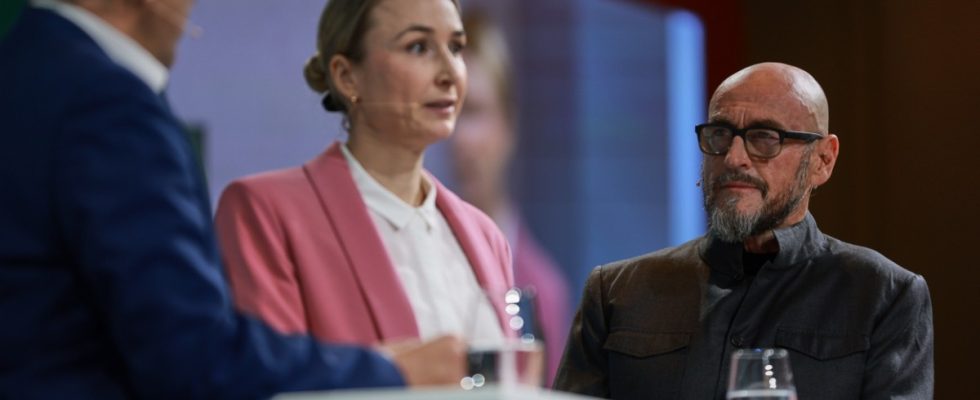The event entrepreneur Jochen Schweizer has a little more time and money since he is no longer on the jury of “The Lions’ Den,” the TV casting show in which founders compete for the favor of prominent investors. But he still likes the role of start-up judge, which was evident during his appearance at the SZ economic summit. There he examined two young companies together with Manon Sarah Littek from the Green Generation Fund: What is your background? How do you want to earn money? Is your business model scalable?
Organifarms
The idea came about at a hackathon in Berlin at the end of 2019. The sociologist Hannah Brown and her three later co-founders encountered a problem that many farmers suffer from: they lack people to harvest fruit and vegetables in their fields and greenhouses.
The team developed a product from the problem. They screwed together the first prototype in the basement of co-founder Dominik Feiden’s parents’ house in Konstanz, a robot called Berry that drives independently through greenhouses and picks strawberries. Using cameras and artificial intelligence, the vehicle detects whether the fruit is ripe. The AI is necessary so that the robot can move safely through the narrow corridors, says co-founder Hannah Brown. “In addition, the lighting conditions in a greenhouse are different everywhere, and the strawberries grow differently on each bush.”
The first customers in Germany and the Netherlands are already using Organifarms’ robot, which costs 100,000 euros, in test operations. The team is currently preparing series production and is about to complete a round of financing.
Health4Future
When the Corona pandemic began, the three sisters Philomena, Penelope and Panoria Poetis were scattered all over the world. The virus forced them to return to Germany, where they had previously worked in their parents’ consulting company. There they also learned how important digitalization is for medicine.
Although none of the sisters have a medical background, this experience made them feel equipped to build a digital platform for those suffering from Long Covid. Patients who suspect they are suffering from Long Covid can enter their symptoms there and receive a suggested diagnosis within a few minutes. This saves those affected a medical marathon and the health system a lot of money, says co-founder Philomena Poetis.
They themselves were surprised by the response. According to its own information, the start-up now looks after 13,500 people suffering from Long Covid. In order to earn money with their idea, the three founders now want to enter into partnerships with health insurance companies and sell paid therapy offers.

